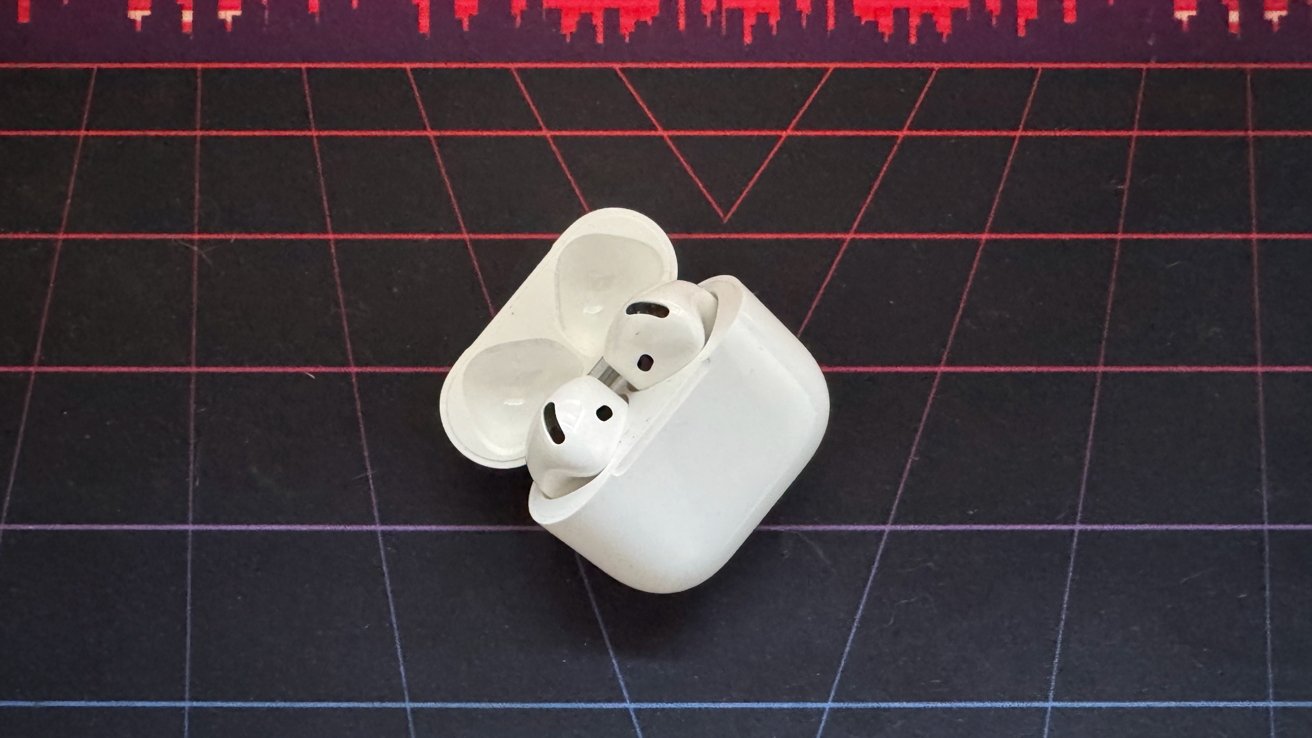When Apple released not one but two different versions of its new AirPods 4 in September of 2024 it changed the landscape of the company’s lineup. And it might just have been a stroke of genius.
While the AirPods Pro 2 and AirPods Max still sit at the very top of Apple’s audio accessory pyramid, they’re known quantities and simply too expensive for a whole lot of people. The arrival of a new AirPods pairing is undoubtedly the best option for millions of people and the AirPods 4 (ANC) is arguably the best wireless earbuds for most people — including me.
I’ve been testing the standard AirPods 4 and upgraded ANC version since not long after they were released and I’ve used them to listen to music, podcasts, and audiobooks for countless hours during that time. I expected to enjoy the ANC version the most, but what I didn’t expect was for them to replace my AirPods Pro 2.
Yet, here we are and I don’t see me going back to my AirPods Pro any time soon, either. This long-term review isn’t going to get into all the nitty-gritty details and specs — you can read our initial AirPods 4 review for that — but rather why AirPods 4 have made a home for themselves in my ears in recent months.
AirPods 4 four-month review: To ANC, or not to ANC
Buyers looking at the prospect of picking up a new pair of AirPods will need to consider which version they want to choose. The main difference between the two is obviously the active noise cancelation (ANC) technology, but it isn’t the only one.
A key difference between the two AirPods 4 models is one that often gets overlooked, but it could be a big one depending on your charging habits. Only the AirPods 4 (ANC) support wireless charging while the standard AirPods 4 are limited to charging via USB-C.
That might not be a huge deal for some, but if you really want wireless charging you’re also going to get ANC included. If you’re a fan of both features, it’s a no-brainer.
Other features that make the ANC version compelling include adaptive audio that can adjust the level of noise cancelation used based on your surroundings. Conversational Awareness is another feature of import, one that lowers the volume when you start speaking so you can have a short conversation without manually pausing whatever’s playing.
Of course, getting better features means paying more money. The standard AirPods 4 retail for $129 while the ANC version will set you back $179. AirPods Pro 2 retail for $249 which means the $70 difference is important to ponder if you’re keen on getting the best wireless earbuds experience. Apple resellers are also running sales on the AirPods line, narrowing the price difference between the models.
AirPods 4 four-month review: A huge design change
My previous choice of using the AirPods Pro wasn’t just down to their superior sound quality or the addition of ANC, although the latter definitely helped. Part of the reason was the simple fact that the design of standard AirPods simply didn’t agree with me. Or more accurately, my ears.
AirPods just never felt like they were in properly, like they could fall out at a moment’s notice and with one ill-timed move of my jaw. I get that some people don’t like the in-ear design of AirPods Pro and similar earbuds, but for me, that seal was as much about security as it was about improving bass and sound leakage.
So when Apple sent me the new AirPods 4 to test late last year, I didn’t have particularly high hopes. I’d used them briefly during a media briefing but that wasn’t enough time to get a real feel for how they would fare in real life.
I wasn’t expecting what happened when I started using these things because while they aren’t quite as secure as AirPods Pro, they aren’t all that far off.
The new design is to thank for that, and it’s one that Apple’s suitably proud of. It says that the “new design is built with an unparalleled data set that uses advanced modeling tools, like 3D photogrammetry and laser topography, to precisely map and analyze thousands of ear shapes and over 50 million individual data points in total.”
That sounds like a lot of data points but figures aside, the proof is in the fitting and Apple’s claim of delivering the most comfortable AirPods ever seems pretty accurate to me. I can wear these things all day, every day, and I often forget I have them in when I leave my home office.
That’s thanks in part to the impressive Transparency Mode feature which is of course only available on the ANC version of AirPods 4.
The design changes don’t stop with the earbuds, either. The charging case has had a nip and tuck as well.
Buy a pair of AirPods 4 and you’ll notice a charging case that’s more than 10% smaller than its predecessor while still offering up to 30 hours of battery life. The ANC pair comes with a wireless charging case that can now be powered by not just any Qi charger but also an Apple Watch charger as well — perfect for those who travel and now have one fewer cable to take with them.
Apple says that the new case is just 50mm wide and the smallest in the industry to support wireless charging. I can’t imagine anyone making a case smaller while maintaining similar functionality, that’s to be sure.
AirPods 4 four-month review: Sounds good to me
A pair of wireless earbuds can have all the bells and whistles in the world, but they’re no good if they sound bad. None of Apple’s AirPods have ever let them down in that regard, but some do sound better than others.
As someone who previously used AirPods Pro earbuds, I was worried that I would find AirPods 4 to be lacking here, and I was pleasantly surprised. Bass was one area I expected the AirPods 4 to really struggle thanks to their open design, but I needn’t have worried.
Now, it’s important to note here that I’m no audiophile and I don’t have any fancy hardware to measure anything. I’m purely using my ears as a gauge and I’m willing to bet that’s the case for most people shopping in the AirPods 4 pool of wireless earbuds, too.
If that’s you, I can tell you now that you won’t be disappointed. I’ve listened to music, podcasts, and audiobooks and they’ve all sounded great. Deep and rumbly when needed, yet light and crisp when it’s called for.
I’ve also taken more phone calls than I’d like over the last few months of testing the AirPods 4 and I’ve yet to have an issue. I could hear the caller and they could hear me, what more could you ask for?
AirPods 4 four-month review: AirPods Pro lite
In case it isn’t already clear, I’m a big fan of what Apple has done with the AirPods 4, and particularly the incarnation with ANC support. They’re basically AirPods Pro-lite and offer many of the same features in a less controversial form factor and at a cheaper price.
AirPods 4 might not sound as good as AirPods Pro 2, although I would argue most people wouldn’t notice a difference. And if you’re all about that noise isolation and avoiding leakage you’re probably still better off going with Apple’s premium earbuds.
For most people, most of the time, AirPods 4 are the way to go. That is, of course, until we see what the next version of Apple’s AirPods Pro has to offer.
The downsides? The main one for me is the color. In a world where the Apple-owned Beats offers earbuds in a multitude of colors, why are AirPods stuck with boring white?
Come on, Apple. It’s time to bring some of those AirPods Max colors to the rest of the lineup.
AirPods 4 four-month review: Pros
- New design that’s easier and more comfortable to wear than ever before.
- ANC support means buyers don’t necessarily have to go for AirPods Pro to get the best features.
- The new ANC charging case is smaller yet supports wireless charging.
- AirPods 4 sound surprisingly great considering their open design, with stronger bass than expected.
AirPods 4 four-month review: Cons
- It’s time AirPods came in something other than white.
- Two versions of AirPods 4 can be confusing, and the naming scheme doesn’t help.
- The lack of volume controls is a pain if you’re used to AirPods Pro 2.
AirPods 4 Rating: 4 out of 5
Where to buy AirPods 4
You can buy Apple’s AirPods 4 at Amazon, with discounts in effect on the earbuds with ANC and without. Browse the best AirPods deals in our dedicated AirPods Price Guide, which is regularly updated to ensure it reflects the best deals.
This story originally appeared on Appleinsider



